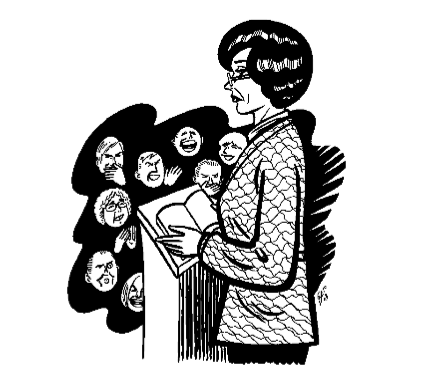“I suppose you want to become a success or something equally vile.”
—John Kennedy Toole, A Confederacy of Dunces
Literature is always written by outsiders. Even lousy literature is written by outsiders. Everything from the artiest bildungsroman to the most boldly ludicrous spy rhapsody to the Styrofoam drama of the lower science fiction was written by a person inclined not toward connecting with those around him or her but retreating into a world of nerdily private dream. But even within the outsider’s own imagination, things do not much improve. The overwhelming majority of a writer’s time is spent wondering why this world is not as vivid as he or she once—agonizingly, deludedly—believed. To write is to fail, more or less, constantly. Most writers are not garrulous people; those few who are can fall prey to substance abuse (in the most notorious cases), or behave in the uniquely alienating way of people who think they are celebrities but are not, actually, celebrated. There are reasons for this. Very little in our culture goes out of its way to reward good writing; as a profession, writing seems to interest people in the same exotic manner that professional whaling interests people. It is hard psychic work to feel professionally estranged. One explanation for why writers enjoy hanging around other writers is because writers often instantly forgive one another for being difficult or weird. In this way New York City is, for writers, a kind of literary sanatorium. I mean to imply in that equation some strong theoretical reservations about the sanatorium.
All the animals in Orwell’s Animal Farm are equal, remember, but some are more equal than others. So, too, then, are some outsiders more outside than others. A few writers, such as Thoreau, seem for the sake of vanity or affectation to will upon themselves outsider status. Thoreau’s friendship with Emerson, probably the most prominent writer of the day, indicates that he was something less than a solitary literary soul. There is the Clown Outsider, such as Whitman, who was not taken seriously until most of the insiders who despised him were dead. There is the Spurned Outsider, such as Melville, whose early success with Typee led him to believe that his skeleton key would forever provide entrance to the inside literary world; by the time Pierre appeared the locks had all been discreetly changed. There is the Outsider From Mars, such as Dickinson. There is the Outsider by Temperament, such as Jack London, who, however magnificent a man, was not actually a very good writer. There is the Square Outsider, such as Willa Cather, loved by readers but...
You have reached your article limit
Sign up for a digital subscription and continue reading all new issues, plus our entire archives, for just $1.50/month.
Already a subscriber? Sign in





